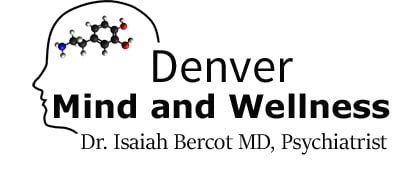
Insomnia
We are all familiar with traditional vital signs such as blood pressure and temperature. But for the modern doctor, there is another very important measure—and that is sleep. Insomnia is extremely common and affects about one in four people each year.
Causes of insomnia are many. They include such varied factors as anxiety, depression, neurotransmitter imbalances, and restless leg syndrome. Physical causes, such as thyroid problems or heart disease, can also lead to insomnia. Insomnia can also be caused by external factors, such as having caffeine too close to bedtime or being exposed to blue light (from electronic devices) in the evening. In addition, sometimes insomnia is a primary disorder in itself, without any contributing medical cause.

Our brain has a sleep/wake switch that is regulated by various neurotransmitters. During the day, the switch is turned to the “on” position partly due to the body’s production of histamine to promote alertness. As the day progresses, the circadian wake drive diminishes due to a variety of factors including the build-up of a chemical called adenosine (which is countered by caffeine). Eventually the system reaches a tipping point and the switch is turned to the “off” position, and we become sleepy.

At least that is how it is supposed to work.
But oftentimes, things do not work as they should. For some people, the sleep/wake switch remains “on” at night. When this happens, people often have trouble falling asleep. For other people, the “on” switch reactivates too early, and they wake up without adequate sleep. The goal of the doctor is to find the right medication to flip the switch to “off” at bedtime and to keep it off when it is time to sleep.
In past decades, insomnia was usually treated as a short-term problem. However, that has changed. Experts in the field now recognize that insomnia is often a chronic problem. Better drugs have been developed that are safer and do not stay in the body as long as the older alternatives, such as barbiturates. This means that we now have medications that cause less carryover effects (such as daytime drowsiness) and which allow the day/wake switch to turn back on when it is appropriate.

